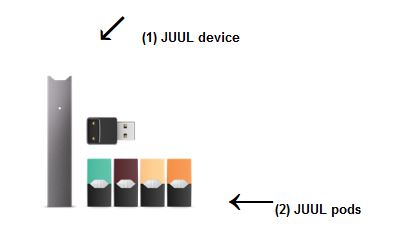JUUL (JOOL – or JEWEL) is an electronic cigarette about the size of a thumb drive that uses nicotine salts that exist in leaf-based tobacco for its key ingredient. It was the most popular e-cigarette in the U.S. at the end of 2017 and currently has a market share of roughly 72 percent (as of September 2018.) There is a lot in the news about this product, with most conversations centered on what is it, why is it so popular and should e-cigarettes be further regulated? State legislators, health care associations, the Food & Drug Administration (FDA) and Congress are all taking notice of the explosive popularity of this product.
JUUL Labs was founded by former smokers, with the goal of improving the lives of smokers. The founders’ goal was to have fewer people rely on cigarettes and find a tool to reduce or eliminate the consumption of cigarettes entirely. The initial plan for this product was smoking cessation programs and kicking the habit of actually smoking a cigarette.
The product has two parts, the device itself and a pod or cartridge. The JUUL device is a closed system vapor product and uses a heating mechanism to create an aerosol. It is charged by inserting it into a USB port. The second component is the JUUL pod, which is the cartridge that clicks into the top of the JUUL device. The pod contains the salt-based nicotine e-liquid formula and is mixed using the JUUL device. This process was intended to help satisfy smokers when transitioning away from cigarettes.

Technology is changing the way smokers are choosing to quit smoking cigarettes; however, there are some unintended consequences, which is why the FDA and elected officials are asking questions. Due to the sleek and small design, young adults have taken to the product in record numbers. This trend has been so dramatic over the last 12-18 months that JUUL and the FDA have announced plans for limiting availability of this product to young adults. State and federal legislators are also looking at laws that would make it illegal for individuals to gain access to these products until the age of 21. JUUL will be working with both federal and state elected officials to assist in the endeavor of getting these devices out of the hands of anyone under the age of 21.
This issue has a high probability to be discussed during the 2019 South Dakota legislative session. There is not draft legislation at this time.




